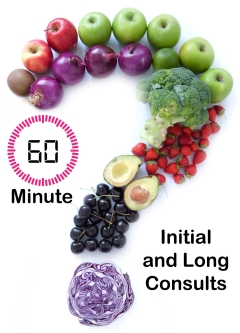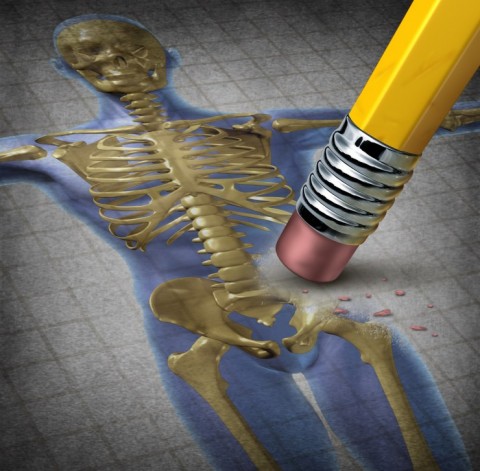DrCarney.com Blog
Milk Increases Bone Fracture and Osteoporosis Risk
The dairy industry and government agencies have led us to believe that regular consumption of milk and milk products is essential for building strong bones in children and the prevention of osteoporosis in older adults. Of course, everyone wants stronger bones and a healthy skeletal system, so millions of people have made it a habit to consume at least one glass of milk per day.
Data released by the USDA Agricultural Marketing Services in 2016 revealed that about 87% of Americans drink milk daily with 36% of Americans consuming 2-3 glasses of milk per day. The desires for the building of a strong skeletal system and maintenance of healthy bones are partly responsible for the high milk consumption rates of millions of Americans. However, many scientific studies have shown that milk and milk products actually promote the development of osteoporosis and increase bone fracture risk.
Evidence Supporting the Bone-thinning Action of Milk
The findings of a 2005 study published in Pediatrics showed that milk had no protective effect on bone health in children. In another study, researchers found out that the chances of suffering from hip fractures are 60% higher in women who regularly consumed 3 or more glasses of milk per day than in women who rarely drank milk or completely avoid milk products. Similarly, the results of a 1994 study that investigated the relationship between dietary intake of dairy products and hip fracture risk in the elderly further lend support to the hypothesis that regular consumption of dairy foods is associated with increased risk of bone fracture.
The Science Behind the Bone-thinning Action of Milk
Calcium is an essential mineral required for muscle contraction, transmission of nerve impulses, and building of strong bones and teeth. For optimal functioning of the body, plasma concentrations of ionized calcium ions need to be maintained within a healthy range. When plasma concentrations of ionized calcium ions increase the excess calcium ions are deposited in the bony tissues, thus strengthening the bones. In contrast, calcium ions are re-absorbed from the bones when serum levels of calcium ions fall too low. Diet is the primary source of calcium ions to the body.
Dairy foods are theoretically rich in calcium. In fact, milk's main selling point is its high calcium content. However, milk also contains large amounts of animal protein and sodium. Regular intake of animal protein and sodium is associated with increased loss of calcium ions from the body via the urine, resulting in a reduction in the plasma level of calcium ions. This decrease in serum concentrations of calcium ions stimulates the re-absorption of calcium ions from the bony matrix, encourages the loss of bone mass, promotes osteoporosis, and increases bone fracture risk.
Alternate Dietary Sources of Calcium
You can reduce your risk of suffering from bone fractures and developing osteoporosis by consuming healthful foods rich in calcium. Unlike milk, plant foods, such as kale, broccoli, Pinto beans, mustard greens, turnip greens, collard greens, cabbage, cauliflower, and green leafy vegetables are healthy sources of calcium. These nutrient-dense foods can help you meet your calcium requirements with ease without increasing your risk of suffering from fractures and developing osteoporosis.
Additional Information:
(1) StatisticBrain: Milk Consumption Statistics
(2) NCBI PubMed: Case-control Study of Risk Factors for Hip Fractures in the Elderly
(3) Health Concerns About Dairy Products
(4) Calcium, Dairy Products, and Bone Health in Children and Young Adults
(5) National Osteoporosis Foundation: Does Drinking Milk Help to Prevent Osteoporosis?
(6) Meeting Calcium Recommendations on a Vegan Diet
One Hour Phone Consult with Dr. Carney

Telephone Food Coaching Sessions with Linda Carney MD
Due to demand for nutritional advice, Dr. Carney's offers Starch-Smart® System "Dietary Care Extraordinaire" Food Coaching telephone sessions. The first sessions is always one hour. Subsequent sessions can be thirty minutes or one hour:
Click Here For 60 Minute Food Coaching Session
Please Note: Food Coaching sessions are not medical appointments and are not intended to replace your own physician. No tests will be ordered and no prescriptions will be provided.
Preview the "Ask the Doc!" Trailer
Your Questions Answered: In Dr. Carney's Starch-Smart® System seminars, written questions from participants are collected beforehand, protecting their privacy. In this informative video presentation, Dr. Carney shares the answer to many of those frequently asked questions - with complex scientific evidence made easy to understand. Learn the answers to what you've always wanted to ask, and so much more!
When you subscribe to the blog, we will send you an e-mail when there are new updates on the site so you wouldn't miss them.




